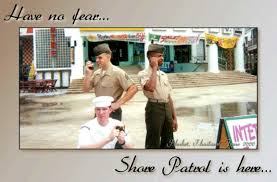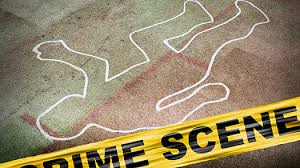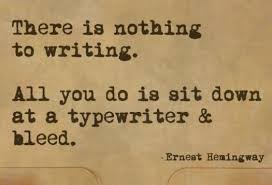The 9-11 Museum is opening at Ground Zero in New York City. Here’s a poem I wrote about the Day the World Changed.


THE DAY THE WORLD CHANGED
At 11 p.m., abed in our Okinawa home,
My ringing phone shattered the silence.
“Turn your TV on!” a friend shouted when I answered.
“A big damn plane just hit the World Trade Center!”
Damned indeed.
As my love and I watched
CNN International over the rest
Of the sleepless night,
We witnessed the second plane
Plow into the towers,
And saw reports of a third
Smash into the Pentagon,
And a fourth crash into a Pennsylvania field,
Then the towers fell.
7,600 miles away, the night cloaked
Our rain soaked cabin, as
Typhoon Nari sat 37 miles offshore,
Threatening a third pass.
It struck once as a tropical storm
And then turned to wallop
The island with 113 mph winds
And 13 inches of rain, destroying
Okinawa’s sugar cane crop,
Darkening 23,000 homes.
The next few days were a blur.
“Get reaction!” my editors
From Tokyo demanded.
I called Marines, soldiers, airmen, sailors,
Civilian base workers for their thoughts.
I bugged commanders for troop movements,
Increases in security. What would happen
When the bases, which cover a fifth of the island,
Opened after the lockdown for the storm?
We all knew there’d be no return to normal.
“I cried,” a woman from New York,
Who sold cars on the air base, said.
“I used to Swing Dance there every week
On the 108th floor at Windows on the World.
I can’t believe it. New York is my home
I always thought of it as indestructible.”
“I’m overcome with grief and anger,”
Said a retired Marine married to an Okinawan.
He was preparing for Nari’s third strike
When he saw a Japanese TV report of the attacks.
“This is war. This is another Pearl Harbor.”
“What’s next, World War III?”
A percussionist for the Marine Band asked.
A corporal from New York, he said he
Was about to be discharged and married.
“I cancelled both,” he said. “I can’t leave, not now.
It may sound crazy, but I can’t quit my country
With something like this going on.”
A soldier’s wife said she felt safe on Okinawa
“Or at least I did until my husband instructed
Us on how we have to be careful and wary
Of any terrorist attacks.”
“I won’t be saying `Have a safe flight,’
So lightly anymore,” an Airman said.
No one, it turned out, would ever be
As free as we were on September 10th.
In South Korea the military slapped
A ban on all off post travel.
On Okinawa cars were no longer waived
Through the gates if they had base decals.
Everyone had to show their IDs
And cars were randomly searched.
In the Plaza Housing Area
Children opened a lemonade stand
To raise money for the rescue workers.
The air base commander announced
His units were, “Ready to take
The battle – the war – to the terrorists.”
“ Our lives changed dramatically
On the 11th of September,” he added.
“Get used to it!”
Some Okinawans, steeped in the islands’
Spiritualist native religion, believed Nari
Spared them from the terrorists.
In the next few days, Navy ships
Departed from Japanese ports
And jets took off for undisclosed locations.
And rumors started to spread.
Islamic militants had infiltrated into countries
Throughout the Western Pacific, one Japanese paper reported.
“Well before Tuesday’s assault,” another printed,
“The United States informed the Japanese government
That terrorist action was anticipated.”
Reports from Macau, Hong Kong and Taiwan stated
Islamists were preparing attacks on U.S. targets.
On Sept. 8 in Manila, three men from Oman were detained
After they were seen in a hotel room videotaping
The nearby U.S. Embassy. They were released.
A later search of their room turned up traces of explosives.
There was a new feeling in the air –
Fear.
Anger.
Late one night I sat outside my cabin,
Sipped a beer and gazed at the lights
Of the harbor below, realizing nothing
Would ever be quite the same.
I opened my journal and wrote:
Terrorists took
Security away
From Americans today.
Now we’re as scared
As a bus rider in Jerusalem,
A shopkeeper in Derry,
A banker in Basque,
A Hindu in Kashmir,
A Muslim in Serbia.
Now, we’re all scared .
Welcome to the terror-ble times.
By David Allen











